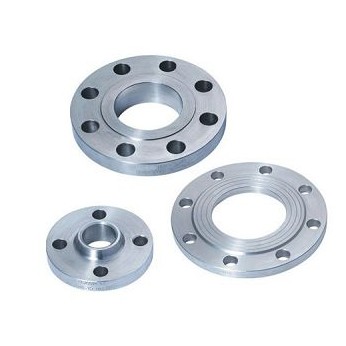Forged flange is a product with better mechanical properties in flange products. We need to understand what effect forging has. On the home page, we need to know how forged flange is processed and formed. Forging flange is a flange processing method that uses forging machinery to apply pressure to metal blanks to cause plastic deformation to obtain forgings with certain mechanical properties, certain shapes and sizes. Forging can eliminate defects such as as-cast looseness produced by the metal during the smelting process, and optimize the microstructure. At the same time, due to the preservation of complete metal flow lines, the mechanical properties of forgings are generally better than castings of the same material.
The raw material of the forged flange is generally a steel billet, which is then continuously hammered after cutting to eliminate defects such as segregation and porosity in the steel ingot. Improper forging process will also cause large or uneven grains and hardening cracks. The cost of forging is higher than that of cast flanges. Forgings can withstand higher shear and tensile forces than castings. The advantage of forgings is that the internal structure is uniform. There are no harmful defects such as air holes and inclusions in castings, and the mechanical properties of forged flanges are higher than ordinary cast flanges.
HEBEI CANGRUN PIPELINE EQUIPMENT CO., LTD. can customize forged flanges of various materials according to construction requirements, and customize various non-standard size forged flanges according to design drawings, process carbon steel forged flanges, and stainless steel forged flanges Flanges, large diameter forged flanges, GB national standard forged flanges, HG chemical flanges, ANSI American standard flanges, JIS Japanese standard flanges, DIN European standard flanges, SH petrochemical flanges.
Author: Maria
Post time: Aug-04-2023

